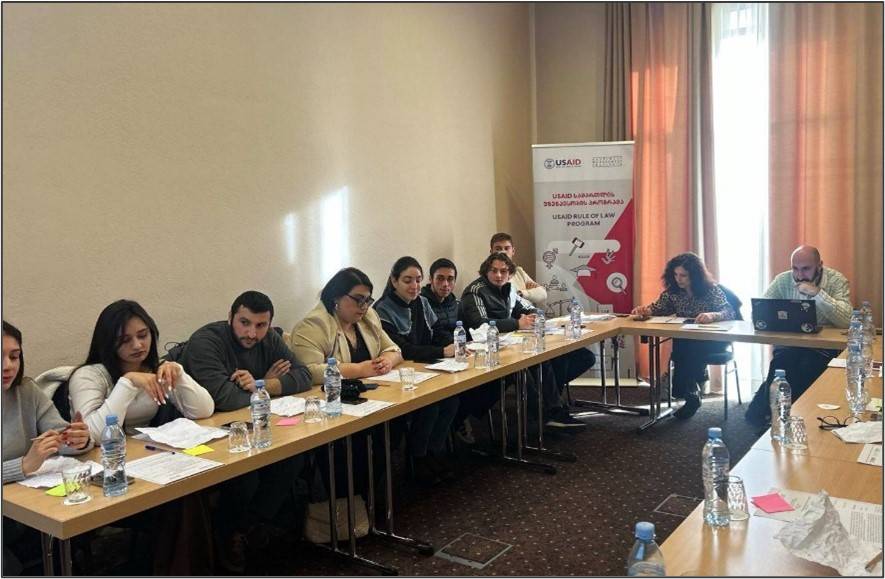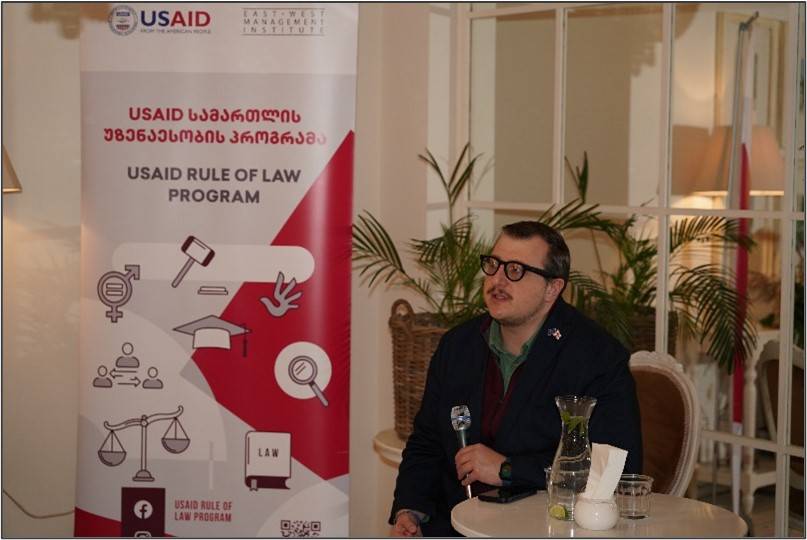GYLA Trial Monitors Report No Improvement in How the Courts Apply Measures of Restraint
On July 15, 2024, with USAID Rule of Law Program support, the Georgian Young Lawyers’ Association (GYLA) presented its N18 Criminal Trial Monitoring Report at a press conference held in Tbilisi. Nona Kurdovanidze, GYLA Chairwoman and Tamar Oniani, Human Rights Program Director, presented the main findings of the report which summed up the results of the organization’s criminal court monitoring, conducted from August 2023 through February 2024 in the Tbilisi, Kutaisi, and Batumi City Courts.
GYLA’s monitoring of criminal trial processes identified several problematic issues related to restraint measures placed upon the accused. GYLA’s monitors noted that courts almost always impose bail or detention, applying them in 97% of monitored cases. They noted that while there is a need for alternative measures, there is no movement toward the passage of legislation that would introduce such measures. Furthermore, GYLA monitors found the court failed to adequately justify the measures it did impose, and that the prosecution failed to substantiate or otherwise explain its request for stricter measures in a high number of cases. GYLA monitors reported that the court rarely questioned detention decisions made by law enforcement, and that judges were not giving careful consideration to the contents of plea bargains but seemed to be just rubber stamping them. GYLA reported that while the courts’ explanation of defendant rights during plea bargain hearings has improved, these hearings often were superficial and brief, sometimes concluding in just 2-3 minutes.
The report addressed issues of court transparency and the right to a hearing within a reasonable time. It noted that courts often fail to publish information about first-appearance hearings. In some cases, the court held the hearings in small rooms despite significant public interest in the case. GYLA’s monitors reported that the accused’s right to a timely trial was frequently compromised by postponement and unwarranted delay. Of 184 monitored hearings, 48% were delayed. The delays were primarily due to drawn out plea bargain negotiations and the prosecution's failure to produce witnesses.
When it came to crimes of domestic violence, GYLA’s monitors reported that while the prosecution sought pre-trial detention in 97% of the monitored cases, courts often applied minimal bail instead. The report noted that despite Prosecutor Office efforts to train prosecutors specialized in domestic violence, the reluctance of victims to testify often resulted in the acquittal of the alleged abuser.







